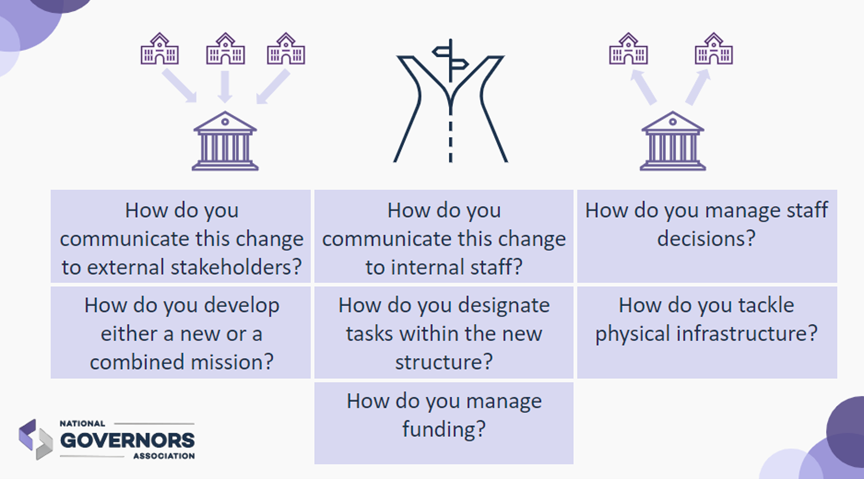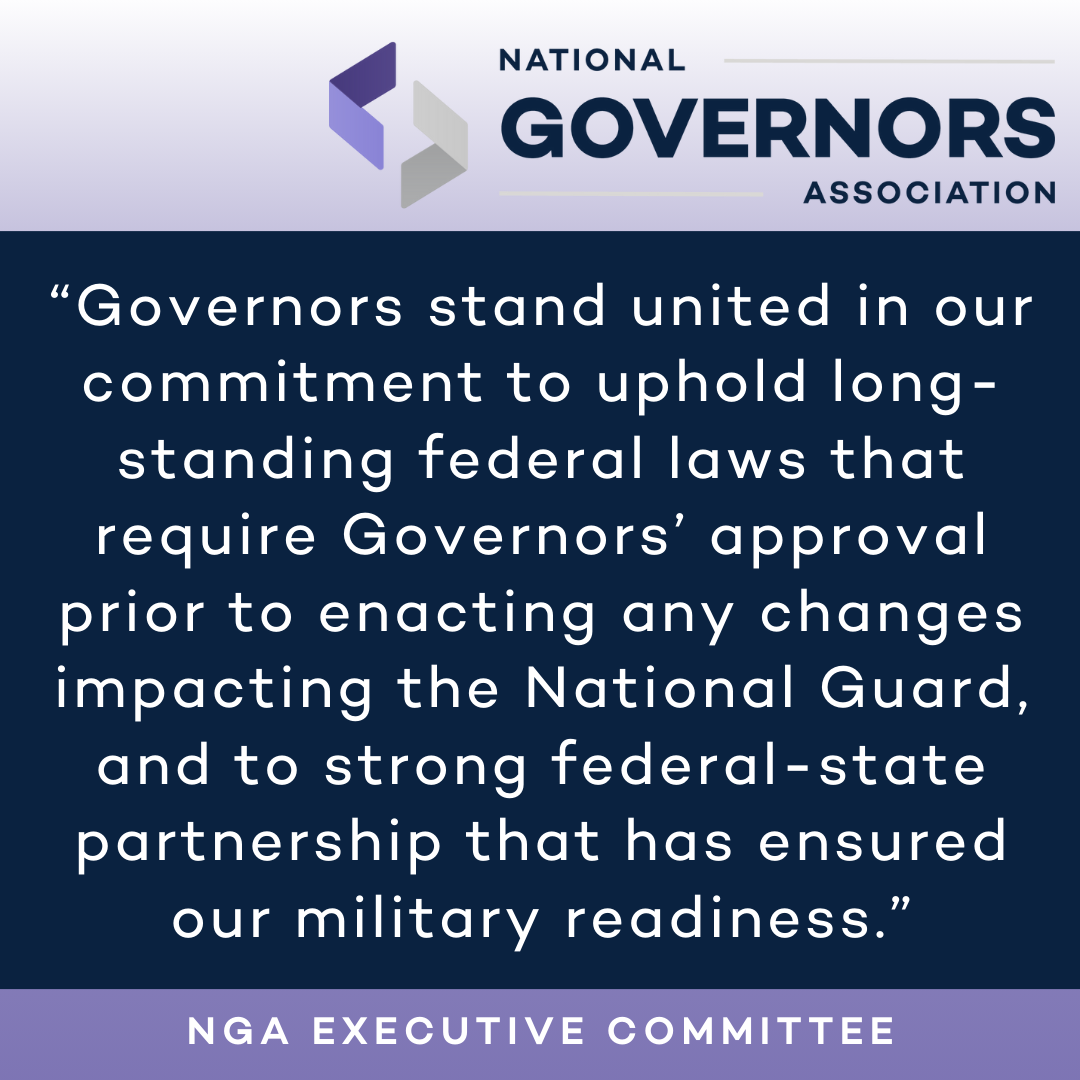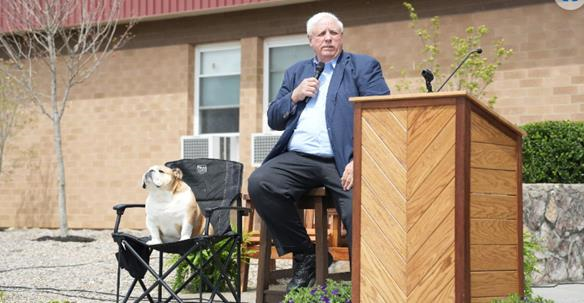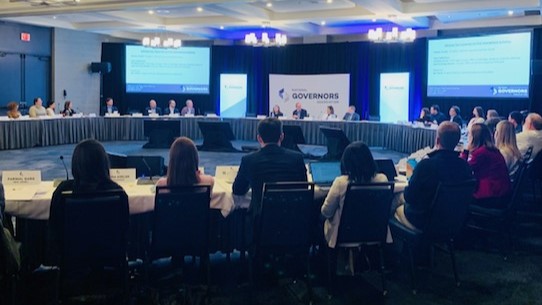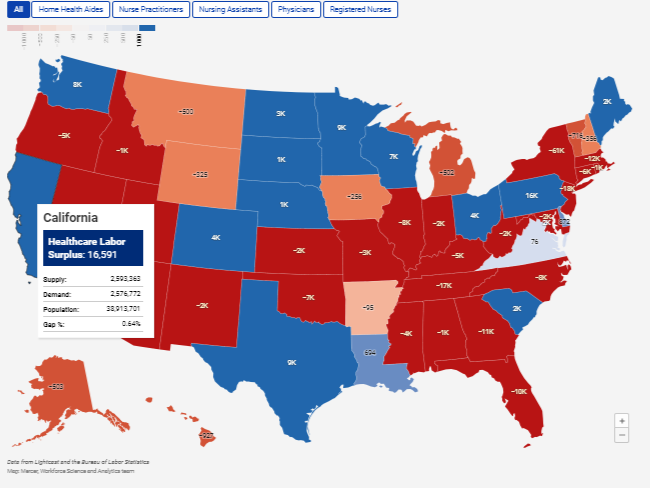The Honorable Patty Murray
Chair
Senate Committee on Appropriations
Capitol Building S-146A
Washington, D.C. 20510
The Honorable Susan Collins
Vice Chair
Senate Committee on Appropriations
Capitol Building S-128
Washington, D.C. 20510
The Honorable Tom Cole
Chair
House Committee on Appropriations Capitol
Building H-307
Washington, D.C. 20515
The Honorable Rosa DeLauro
Ranking Member
House Committee on Appropriations
1036 Longworth House Office Building
Washington, D.C. 20515
Dear Chair Murray, Chair Cole, Vice Chair Collins, and Ranking Member DeLauro:
The National Governors Association’s Economic Development and Revitalization Task Force welcomes the opportunity to provide you with our priorities as your respective committees continue to craft and consider the Fiscal Year 2025 (FY25) appropriations bills.
In 2021, NGA adopted task forces as a more streamlined, Governor-driven approach to formulate and execute on federal policy matters that are priorities to Governors. The three task forces — Education, Workforce, and Community Investment; Public Health and Disaster Response; and Economic Development and Revitalization — work in a bipartisan fashion to coordinate NGA’s work on federal policy issues.
The Economic Development and Revitalization Task Force has jurisdiction over issues in the areas of infrastructure, broadband, state stabilization, energy, environment, land management, technology, and taxes. Congress has been an instrumental partner for states and territories in funding efforts to help support infrastructure, economic development, and environmental programs. Therefore, as you look toward Fiscal Year 2025’s appropriations process, NGA requests that you prioritize the following funding efforts in support of:
- Surface Transportation Funding: Governors request a continued strong commitment to our nation’s transportation infrastructure, by providing full funding for core highway and transit programs included in the surface transportation program with the Infrastructure Investment and Jobs Act (IIJA). The historic funding certainty provided by the IIJA will be critical as states and territories develop long-term transportation plans, and Governors applaud Congress for fully funding authorized levels of the surface transportation program over the past several years.
- Transportation Grant Programs: Rebuilding American Infrastructure with Sustainability and Equity (RAISE) discretionary grants, National Infrastructure Project Assistance (Mega) funding, Infrastructure for Rebuilding America (INFRA) grant programs, Rural Surface Transportation Grants (Rural), and Capital Investment Grants for transit are critical tools for building our nation’s infrastructure. Governors urge Congress to continue to prioritize and fund these vital infrastructure programs.
- Highway Trust Fund Solvency: Governors recognize the critical importance of the Highway Trust Fund (HTF) and the programs it supports for maintaining and improving America’s surface transportation infrastructure. We are, however, concerned about the impact of decreasing revenues, inflation, and other factors on the long-term solvency of the fund. We urge Congress to work with Governors to consider and implement sustainable funding sources for the HTF, while avoiding overly burdensome regulatory requirements that slow crucial infrastructure investment. Governors believe that new federal mandates, regulation, and bureaucracy that go beyond the intent and statute of the Infrastructure Investment and Jobs Act will stifle efficiencies, suppress the effectiveness of the increased investment levels, and unnecessarily delay critically needed transportation improvements.
- Water Infrastructure: Governors share Congress’s ongoing concerns about aging water, inland waterway, port, and wastewater infrastructure. We commend your leadership in passing the IIJA and the historic resources for flooding mitigation and coastal resilience as well as drinking water and wastewater projects. Governors also encourage and look forward to the timely, bipartisan Water Resources Development Act (WRDA) 2024 reauthorization. NGA supports continued efforts to ensure the Harbor Maintenance Trust Fund and Inland Waterways Trust Fund receipts are equitably allocated and dedicated for their intended purpose to ensure our ports and inland waterways are maintained at the highest level. Additionally, Governors support robust funding for the U.S. Army Corps of Engineers civil works program for flood control and ecosystem restoration.
- Environmental Protection Agency (EPA) Programs: Cooperative federalism was core to the EPA’s creation in the 1970s and remains integral to its success. Over the last decades, states and territories have become the primary implementers of many of our nation’s environmental statutes, having assumed over 96 percent of the delegable authorities under federal law. However, adequate federal resources remain necessary for states and territories to fulfill these responsibilities given constrained budgets. Governors collectively call for funding state-federal programs that assist states and territories in implementing federal environmental laws such as the Clean Air Act, Clean Water Act, Safe Drinking Water Act, and Resources Conservation and Recovery Act, as well as continued funding for EPA’s State and Tribal Assistance Grants (STAG). In particular, Governors support full funding for the Drinking Water and Clean Water State Revolving Funds (SRFs) to provide long-term, low-cost loans for state and territorial projects. We are concerned about the adverse impact of Congressionally Directed Spending (CDS) on the Clean Water and Drinking Water SRFs and ask that Congress take steps to mitigate further cuts to SRF capitalization grants. Furthermore, Governors have advocated for the need to improve environmental reviews and welcome funding that supports states and territories to grow capacity and improve their own permitting processes to assist local communities. Finally, Governors recognize the importance of addressing forever chemicals (PFAS) and urge Congress to provide adequate support to states and territories for remediation efforts.
- Broadband Deployment and Access: As Governors, we understand the critical role that reliable and accessible internet connectivity plays in bridging the digital divide in our communities. Internet access is essential for telehealth, accessing education and workforce development programs, and connecting the 21st century economy. We strongly support the wide range of federal programs through the National Telecommunications Information Administration, the U.S. Department of Agriculture, and the Federal Communications Commission, which support broadband deployment in unserved and underserved areas. Congress should continue to prioritize and consider programs that help low-income households access affordable internet service. Continued funding for programs like the Affordable Connectivity Program is crucial in our efforts to ensure the adoption of services now available through the significant broadband infrastructure investments in our states and territories.
- Economic Development Administration (EDA) Programs: EDA is the only federal agency with a mission solely focused on private sector job creation in distressed areas. EDA is important to Governors because it serves as a catalyst in helping states and territories achieve long-term economic growth. EDA is designed to create jobs and stimulate the economy in areas of the country that need the most help — both rural and urban — and now plays a critical role in deploying funding for regional technology hubs as part of the CHIPS and Science Act. Governors urge Congress to include robust funding for EDA in Fiscal Year 2025 and continue to work towards EDA reauthorization.
- Energy Grant Programs: Governors support full funding for the State Energy Program (SEP) and Weatherization Assistance Program (WAP). These programs are critical tools for the development and implementation of our state and territorial energy strategies and goals and examples of successful state-federal programs. SEP is the primary state-federal cooperative program addressing energy efficiency and renewable energy projects in all sectors of the economy. States and territories have a history of successfully matching federal dollars with state, local, and private funds to help homeowners, small businesses, schools, municipalities, and hospitals save energy. Similarly, WAP helps low-income families, the elderly, and the disabled by improving the energy efficiency of low-income housing.
- Environmental Management: Governors express our continued support of predictable federal funding for states that are home to Defense Environmental Cleanup sites managed by the U.S. Department of Energy (DOE), and we request substantially increasing funding for the Office of Environmental Management. According to DOE’s own estimates, each year that the federal government underfunds the cleanups at the sites in our states, the completion timeline – and the expected cleanup cost of the aging facilities and infrastructure – increases by years and billions of dollars, respectively, while the potential for radioactive contamination increases. The best way the federal government can meet its obligations and protect taxpayers is to invest in the resources needed now to accelerate these cleanups.
- Sufficient Wildfire Response and Management Funding: Governors appreciate federal, state, territorial, local, tribal, non-governmental and public partners who help manage our national cohesive wildfire management strategy and effectively respond to wildfires when they occur. Governors urge strong funding for this work at the U.S. Department of Interior and the U.S. Forest Service and request increased funding for Wildland Fire Management activities. Congress should also ensure relevant agencies are effectively implementing long-term wildfire mitigation strategies.
On behalf of all Governors, we thank you for your continued support of these top NGA priorities for Fiscal Year 2025, and for focusing on funding our nation’s critical needs.
Sincerely,
Governor Spencer Cox, Utah
Chair
National Governors Association
Governor Andy Beshear, Kentucky
Co-Chair
Economic Development and Revitalization Task Force
National Governors Association

